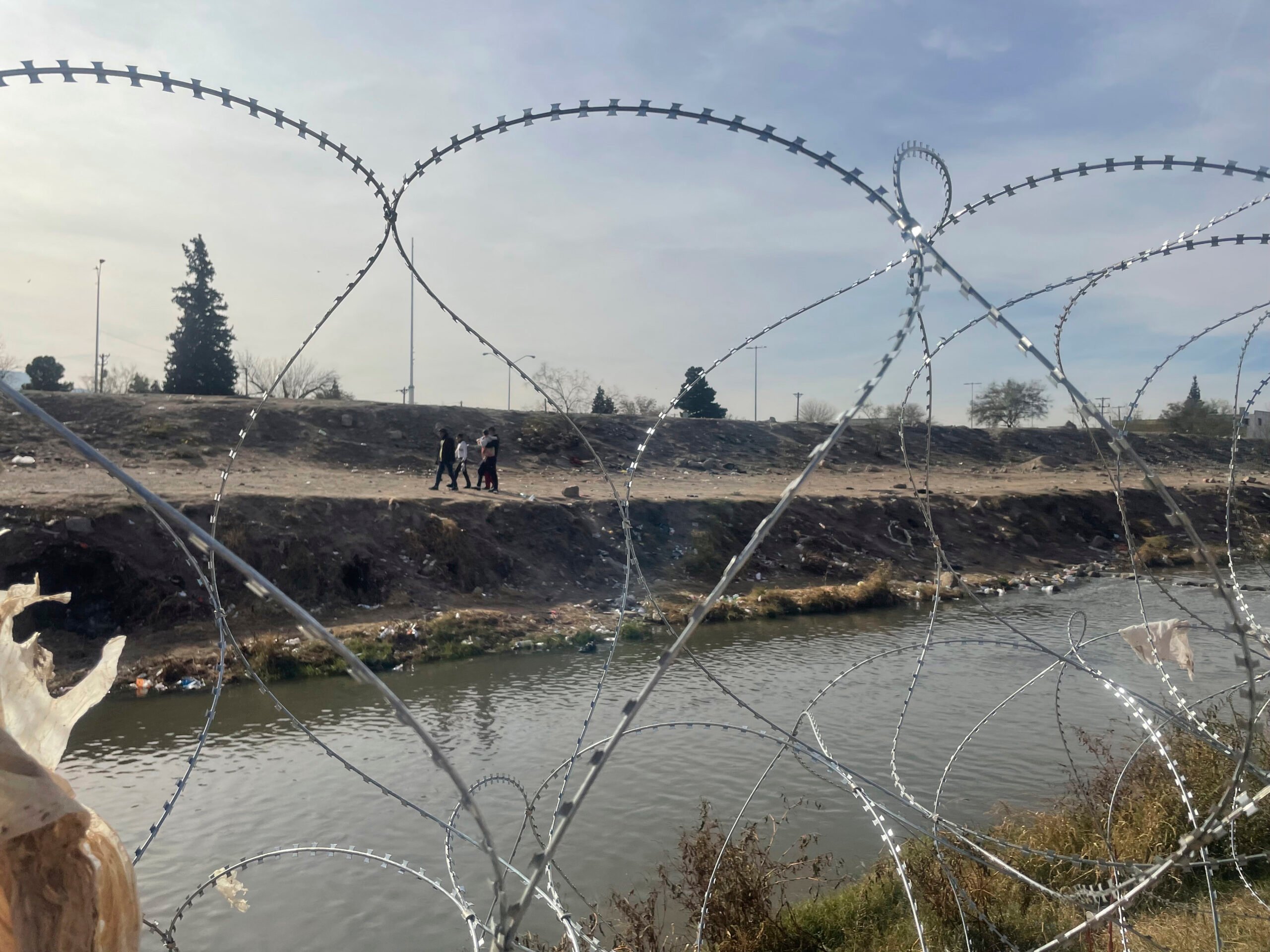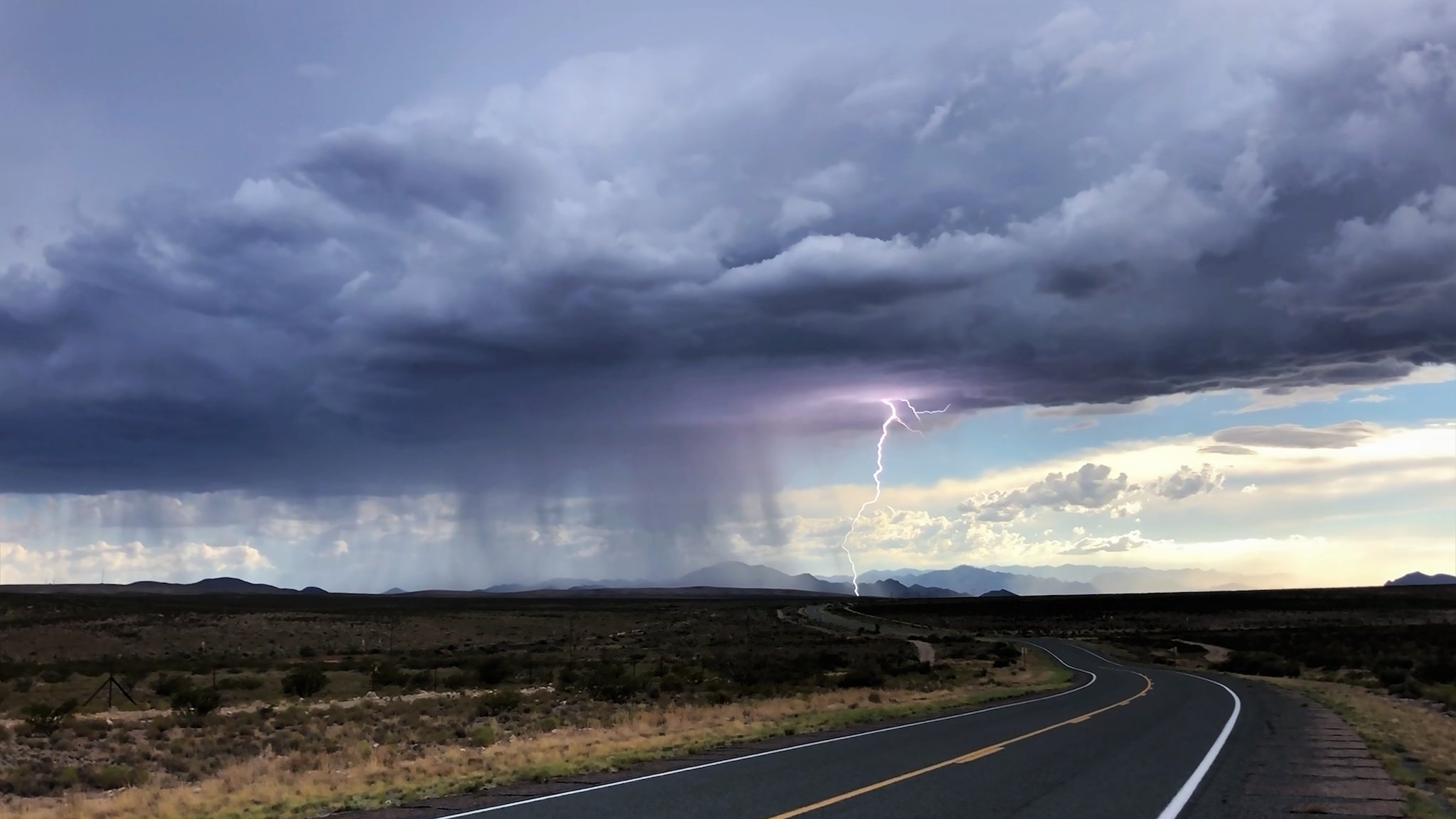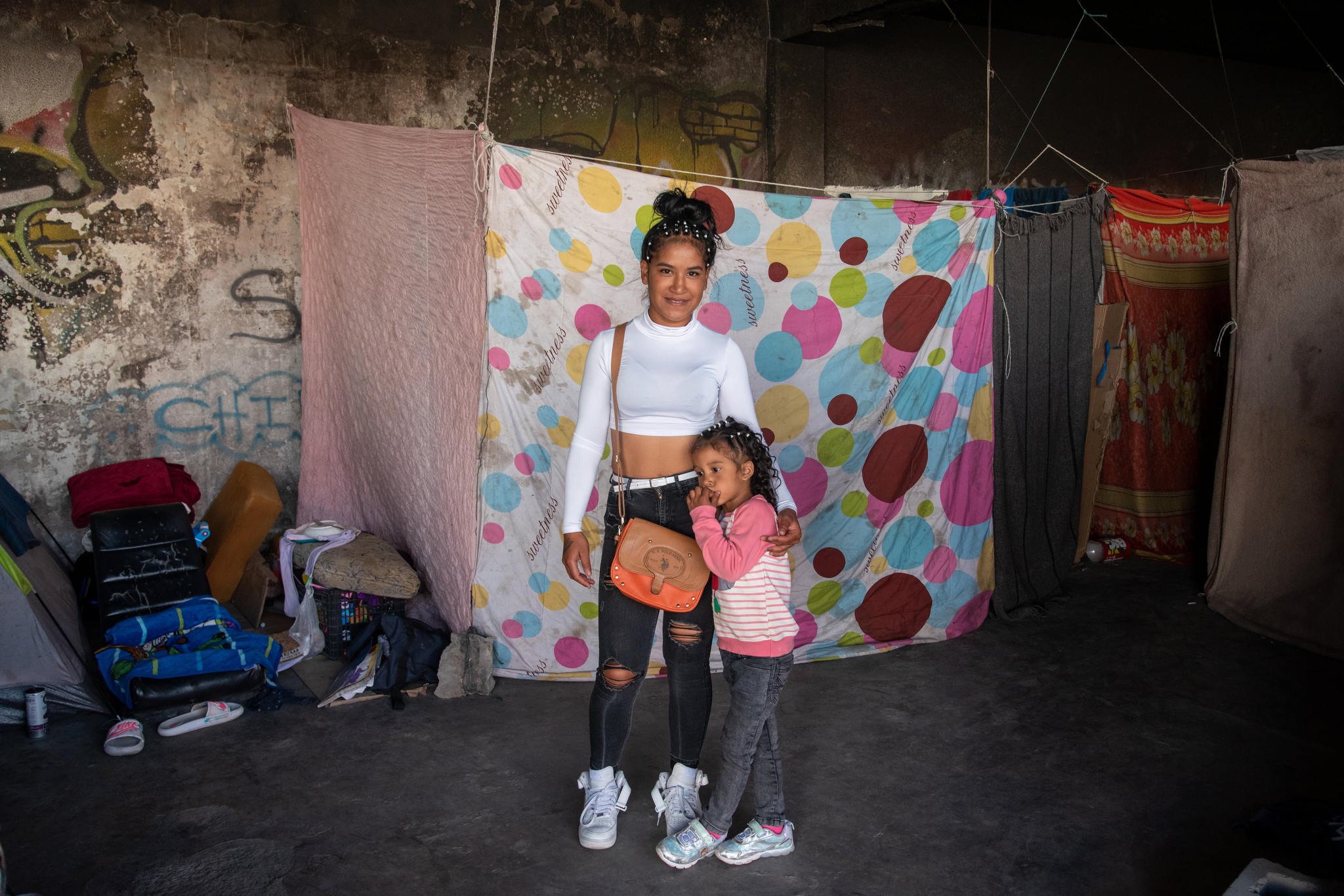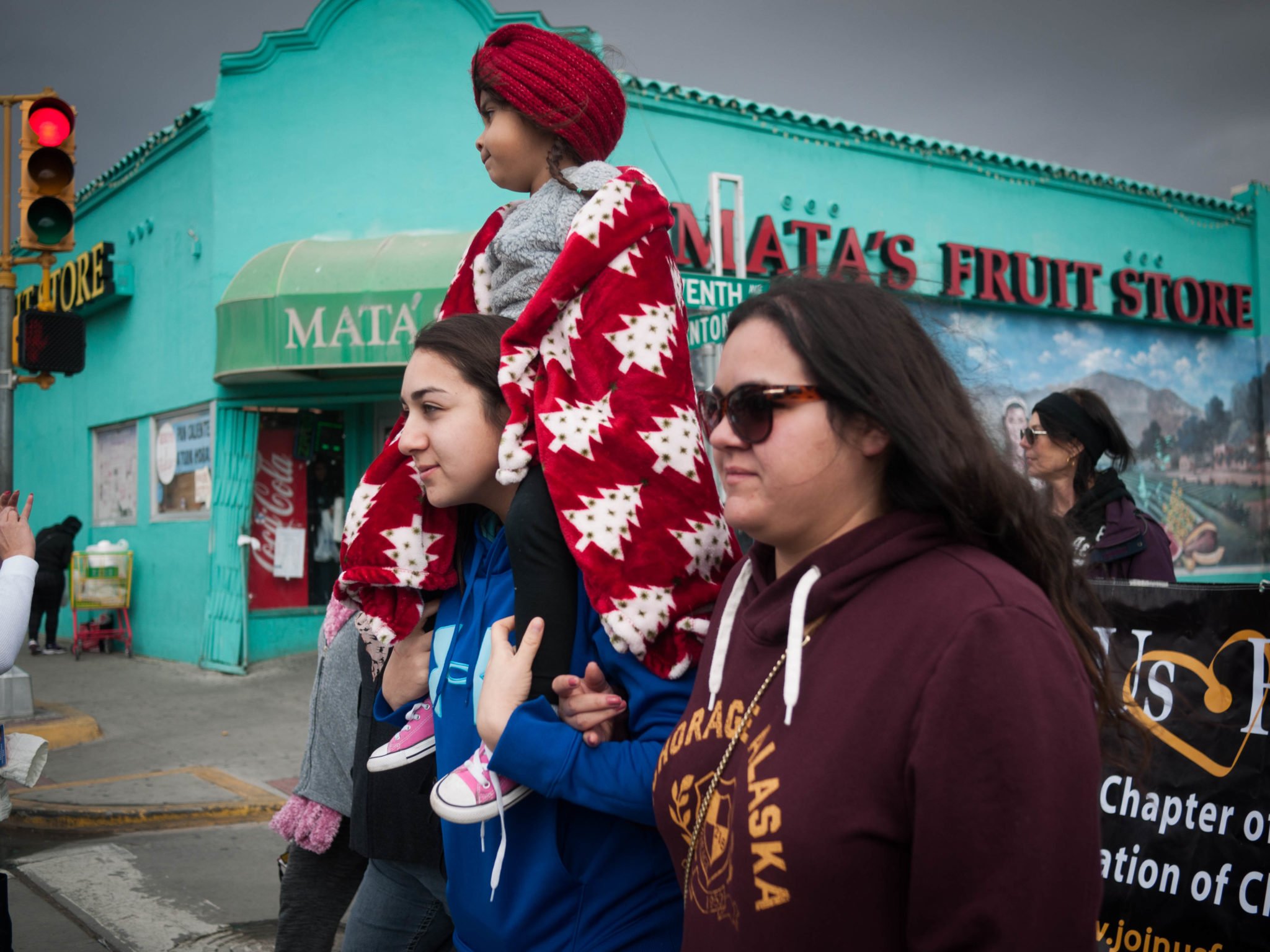
In El Paso, Demonstrators Stress Connection Between Women’s Rights and Immigrants’ Rights
Many at the rally along the Texas-Mexico border said draconian immigration policies would fall heavily on women and children.
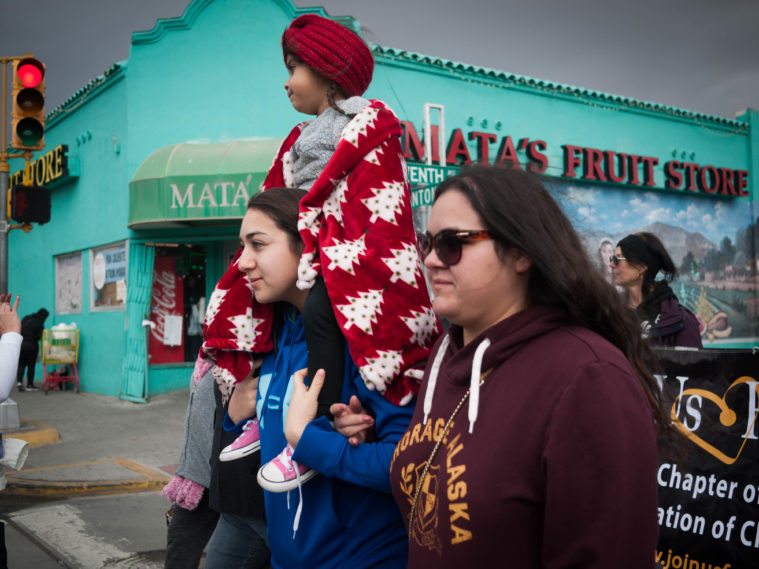
Gale force winds and rain were no match for the more than 1,000 people who turned up to march in the streets of El Paso in support of women’s rights and the rights of immigrants.
Protesters gathered at Armijo Park, just a stone’s throw from the U.S.-Mexico border. The message was one of binational unity in the face of Donald Trump, who has promised to deport millions of undocumented immigrants and build a wall paid for by Mexico while offending many Americans with demeaning comments about women, Mexicans, Muslims and others.
Many at the El Paso rally said draconian immigration policies would fall heavily on women and children.
“Children cannot be raised without their mothers and fathers,” said Xochitl Nicholson, one of the march’s organizers and a member of Boundless Across Borders, a newly formed community coalition inspired by the recent mobilization of women in response to Trump. “Mothers cannot be ripped from their children and remain healthy and whole.”
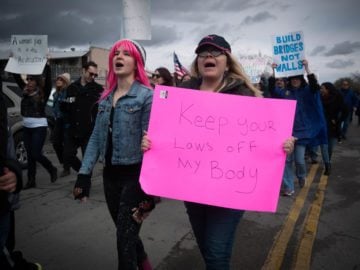
That message was reflected in the signs and chants at the march. “Make bridges, not walls” was a popular sign. “We are boundless; we shall not be moved. Just like a tree that’s planted by the water, we shall not be moved,” the demonstrators sang in unison.
Maria Alvarado came to the protest with her two teenage sons. They carried a poster emblazoned with “Mexicanos en Exilio,” the name of an organization dedicated to helping Mexicans who are fleeing violence and persecution find asylum in the United States. Alvarado said she came to the U.S. three years ago and has been living in exile with her family in El Paso while they seek political asylum. In Mexico, they had been persecuted by Mexican government officials for trying to find out what happened to three of her family members — a sister and two cousins — who were “disappeared,” she said.
“We don’t have legal status here in the United States,” Alvarado said in Spanish. “We’ve waited for three years and we’re just now going to have our first hearing with immigration.”
Sandra Spector, a member of Mexicanos en Exilio, whose husband, Carlos Spector, specializes in the difficult task of representing Mexican political asylees, stood beside Alvarado and her sons. She said that Alvarado had an excellent chance of attaining political asylum but that Trump and his promise of hardline immigration policies could dramatically change Alvarado’s prospects.
“We’re concerned that they’re going to get stricter and they’re going to start deporting people,” Spector said. “They’re going to get more judges that are conservative and they’re not going to have a chance.”
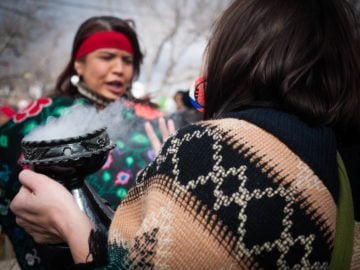
After marching for an hour, demonstrators ended their march at San Jacinto Square, where a number of speakers addressed the crowd. Among them was a woman who called attention to the fact that undocumented women are more susceptible to domestic violence when abusers use immigration status as a weapon to control them.
“There are many of us who are afraid of calling the police because by doing so, our status might be compromised,” she said.
El Paso County Judge Veronica Escobar stressed the importance of voting and political engagement. “Elections have consequences and the reason there is so much fear rippling through this country is because of the outcome on November 8,” she said.
Despite the result, El Paso had record voter turnout in November and overwhelmingly supported Hillary Clinton by margins that far exceeded support for President Obama in 2008.
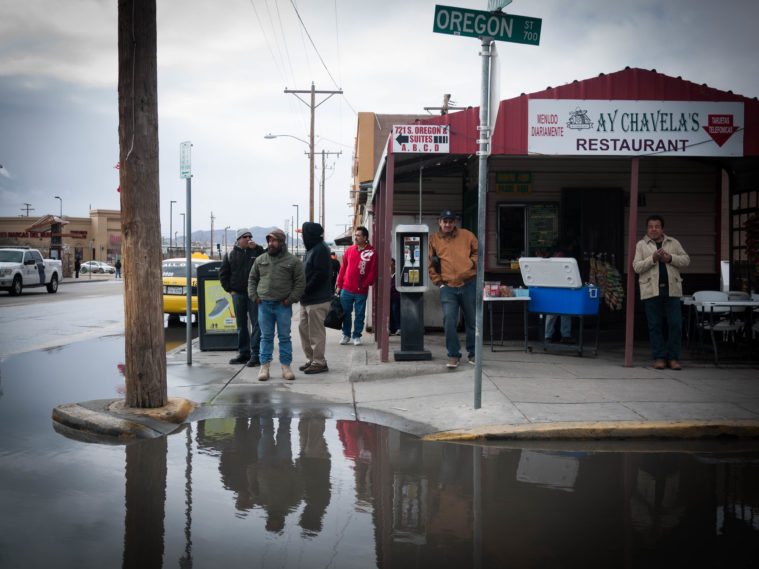
Organizers seemed pleased with the turnout today, too. “It means we’re on the right track,” Nicholson said. “It means we’re not alone.”
